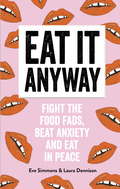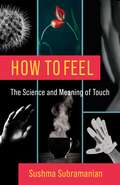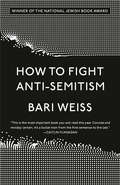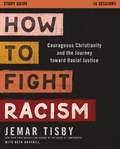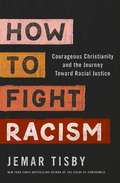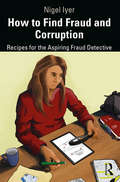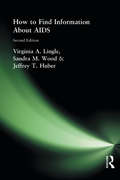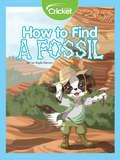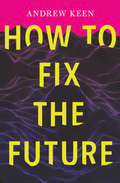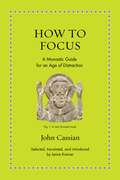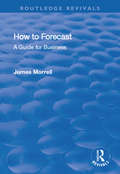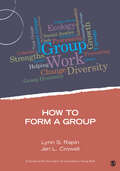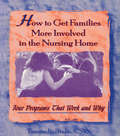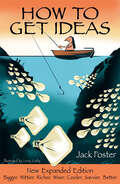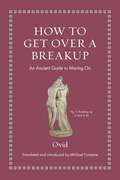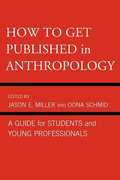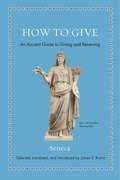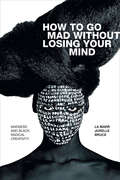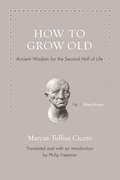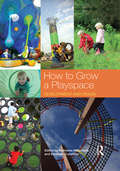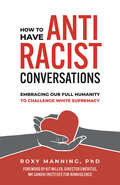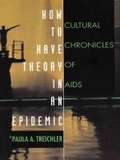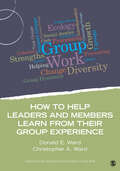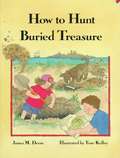- Table View
- List View
How to Feel the Fear and Eat It Anyway: How to Eat Everything (and Stop Worrying About it)
by Eve Laura Dennison'One cannot think well, love well, sleep well, if one has not dined well.' - Virginia Woolf.The definition of 'healthy eating' has been chewed up, spat out and re-digested enough times to make Joe Public give up and seek out their nearest branch of McDonald's. Our mindless obsession with eating 'right' is such that we're now more concerned about what our Instagram followers think of a poorly lit picture of our dinner than we are of its effect on our own palate. Or, indeed, our happiness. We seem to be living in a time where we no longer eat with our hearts, emotions or heritage - but with what our waistlines (and followers) in mind.Not Plant Based are on a mission to help you love food again. The principle is very simple: eat what you like and don't worry about it. It's a menu that's especially delicious, 'guilt-free' and requires a hell of a lot less money spent in health food shops. Throughout the book, Laura and Eve call on experts to debunk myths and provide a balanced exploration of our attitude towards food, with some delicious recipes thrown in along the way. They discuss their own experiences of eating disorders and offer personal tips and coping mechanisms to help rid you of anxiety linked to food. No one is saying healthy eating is bad; there is simply a lot of misleading information out there. More to the point, food is so much more in the grand scheme of life than health: it's family, friends, enjoyment and memories. So go on, take a bite out of How To Feel the Fear and Eat It Anyway and learn to love your food all over again. It's SO mouth-wateringly good - we bet you'll be back for seconds.
How to Feel: The Science and Meaning of Touch
by Sushma SubramanianWe are out of touch. Many people fear that we are trapped inside our screens, becoming less in tune with our bodies and losing our connection to the physical world. But the sense of touch has been undervalued since long before the days of digital isolation. Because of deeply rooted beliefs that favor the cerebral over the corporeal, touch is maligned as dirty or sentimental, in contrast with supposedly more elevated modes of perceiving the world.How to Feel explores the scientific, physical, emotional, and cultural aspects of touch, reconnecting us to what is arguably our most important sense. Sushma Subramanian introduces readers to the scientists whose groundbreaking research is underscoring the role of touch in our lives. Through vivid individual stories—a man who lost his sense of touch in his late teens, a woman who experiences touch-emotion synesthesia, her own efforts to become less touch averse—Subramanian explains the science of the somatosensory system and our philosophical beliefs about it. She visits labs that are shaping the textures of objects we use every day, from cereal to synthetic fabrics. The book highlights the growing field of haptics, which is trying to incorporate tactile interactions into devices such as phones that touch us back and prosthetic limbs that can feel. How to Feel offers a new appreciation for a vital but misunderstood sense and how we can use it to live more fully.
How to Fight Anti-Semitism
by Bari WeissThe prescient New York Times writer delivers an urgent wake-up call to all Americans exposing the alarming rise of anti-Semitism in this country—and explains what we can do to defeat it. “Stunning . . . Bari Weiss is heroic, fearless, brilliant and big-hearted. Most importantly, she is right.”—Lisa Taddeo, #1 New York Times bestselling author of Three Women On October 27, 2018, eleven Jews were gunned down as they prayed at their synagogue in Pittsburgh. It was the deadliest attack on Jews in American history. For most Americans, the massacre at Tree of Life, the synagogue where Bari Weiss became a bat mitzvah, came as a total shock. But anti-Semitism is the oldest hatred, commonplace across the Middle East and on the rise for years in Europe. So that terrible morning in Pittsburgh raised a question Americans can no longer avoid: Could it happen here? This book is Weiss’s answer. Like many, Weiss long believed this country could escape the rising tide of anti-Semitism. But now the luckiest Jews in history are beginning to face a three-headed dragon known all too well to Jews of other times and places: the physical fear of violent assault, the moral fear of ideological vilification, and the political fear of resurgent fascism and populism. No longer the exclusive province of the far right, the far left, and assorted religious bigots, anti-Semitism now finds a home in identity politics and the reaction against identity politics, in the renewal of America First isolationism and the rise of one-world socialism, and in the spread of Islamist ideas into unlikely places. A hatred that was, until recently, reliably taboo, anti-Semitism is migrating toward the mainstream, amplified by social media and a culture of conspiracy that threatens us all. Weiss’s cri de coeur is an unnerving reminder that Jews must never lose their hard-won instinct for danger, and a powerful case for renewing Jewish and American values in uncertain times from one of our most provocative writers. Not just for the sake of America’s Jews, but for the sake of America.
How to Fight Racism Study Guide: Courageous Christianity and the Journey Toward Racial Justice
by Jemar TisbyThe How to Fight Racism Study Guide, used together with the How to Fight Racism Video Study, provides groups and individuals with practical tools and suggestions, along with real-world examples of change, to enable them to become proactive initiators of racial justice. Tisby offers an array of actionable items to confront racism in our relationships and in everyday life through a simple framework--the A.R.C. Of Racial Justice--that helps readers consistently interrogate their own actions and maintain a consistent posture of anti-racist action. This book is for anyone who believes it is time to stop compromising with racism and courageously confront it.The study guide, along with the video study, offers readers the opportunity to be part of the solution to racial problems and suggests that the application of these principles can offer us hope that will transform our nation and the world. Tisby encourages us to reject passivity and become active participants in the struggle for human dignity across racial and ethnic lines. Readers of the book will come away with a clear model for how to think about race in productive ways and a compelling call to dismantle a social hierarchy long stratified by skin color.
How to Fight Racism: Courageous Christianity and the Journey Toward Racial Justice
by Jemar TisbyRacism is pervasive in today's world, and many are complicit in the failure to confront its evils. Jemar Tisby, author of the award-winning The Color of Compromise, believes we need to move beyond mere discussions about racism and begin equipping people with the practical tools to fight against it.How to Fight Racism is a handbook for pursuing racial justice with hands-on suggestions bolstered by real-world examples of change. Tisby offers an array of actionable items to confront racism in our relationships and in everyday life through a simple framework--the A.R.C. Of Racial Justice--that helps readers consistently interrogate their own actions and maintain a consistent posture of anti-racist action. This book is for anyone who believes it is time to stop compromising with racism and courageously confront it.Tisby roots the ultimate solution to racism in the Christian faith as we embrace the implications of what Jesus taught his followers. Beginning in the church, he provides an opportunity to be part of the solution and suggests that the application of these principles can offer us hope that will transform our nation and the world. Tisby encourages us to reject passivity and become active participants in the struggle for human dignity across racial and ethnic lines. Readers of the book will come away with a clear model for how to think about race in productive ways and a compelling call to dismantle a social hierarchy long stratified by skin color.
How to Find Fraud and Corruption: Recipes for the Aspiring Fraud Detective
by Nigel IyerIn a typical working environment in which 'fraud and corruption' is as normal as a headache or as common as a cold, everyone in the organization has a role to play in finding and deterring fraudsters. Despite universal acknowledgement that these things may be illegal but still prevalent, managers still treat them as 'someone else's problem' or 'something that happens to other businesses, not ours’. This book shows, in simple terms, how everybody can become a successful fraud detective. A series of proven and easy-to-follow recipes show how to find the tell-tale signs of fraud and corruption and work with colleagues to deal with fraud smartly, keeping the organization you work for healthy and clean. The skills taught in this book are based on over 25 years’ experience of successfully finding and dealing with fraud and corruption, all around the world. How to Find Fraud and Corruption offers wayfinding techniques for identifying and recognizing common frauds such as: suppliers who charge too much; sharp business partners and consultants who are taking you for a ride; customers who take but prefer not to pay. It also shows how to spot and unravel more complex but equally serious and common frauds: hidden connections to dirty money centres (the illegitimate side of tax havens); bribes paid as a shortcut to get business; creative numbers fraud (inflation of sales figures or suppression of costs); conflicts of interest involving individuals inside or outside the business. The final chapter is a short story (based on a real case) which illustrates a fraud detective’s challenges, whether they are a reluctant whistleblower, someone who cannot turn a blind eye even if they would prefer to, or even the accused. Accessible and practical, this book is for everyone who wants to stop fraud, including those working in accounting and finance, management, specialist functions, such as audit, compliance and security, and anyone else who aspires to be a fraud detective and stop fraud and corruption.
How to Find Information About AIDS: Second Edition
by M Sandra Wood Jeffrey T Huber Virginia A LingleIf you have ever attempted to research the AIDS epidemic or the HIV virus, you have discovered the overwhelming array of information sources. How do you know which information is the most accurate and most current? This second edition contains a directory of sources and resources in the AIDS information arena, designed to make it easy for anyone to find information on AIDS.Important Topics Covered: Organizations--includes AIDS service organizations, community-based organizations, and organizations operating at the local, regional, state, and national level Health Departments--identifies state offices, including the District of Columbia, that provide AIDS-related information or that can refer individuals to the appropriate organization Research Institutions, Grant Funding Sources, Education and Training Centers, and Federal Agencies Hotlines--both local and national Electronic Sources of Information--includes specific journals, bibliographies, and monographs Audiovisual Producers--covers producers of audiovisuals concerning AIDSThe organization of the directory and the indexes, arranged geographically as well as alphabetically, are compelling features of this timely book. How to Find Information About AIDS, Second Edition is a valuable addition to the reference collection of librarians, counselors, school teachers, AIDS organization administrators, and medical personnel.
How to Find a Fossil
by Amy TaoLearn about the basics of fossil hunting with Tray the Dog, including where to look and good habits to keep while hunting.
How to Fix the Future: Staying Human In The Digital Age (Books That Changed the World)
by Andrew KeenFrom data breaches to disinformation,a look at the digital revolution’s collateral damage with “practical solutions to a wide-range of tech-related woes” (TechCrunch).In this book, a Silicon Valley veteran travels around the world and interviews important decision-makers to paint a picture of how tech has changed our lives—for better and for worse—and what steps we might take, as societies and individuals, to make the future something we can once again look forward to.“A truly important book and the most significant work so far in an emerging body of literature in which technology’s smartest thinkers are raising alarm bells about the state of the Internet, and laying groundwork for how to fix it.”?Fortune“After years of giddiness about the wonders of technology, a new realization is dawning: the future is broken. Andrew Keen was among the first and most insightful to see it. The combination of the digital revolution, global hyperconnectivity, and economic dysfunction has led to a populist backlash and destruction of civil discourse. In this bracing book, Keen offers tools for righting our societies and principles to guide us in the future.”?Walter Isaacson, New York Times-bestselling author of Steve Jobs and Leonardo Da Vinci“Comparing our current situation to the Industrial Revolution, he stresses the importance of keeping humanity at the center of technology.”?Booklist“Valuable insights on preserving our humanity in a digital world.”?Kirkus Reviews (starred review)
How to Focus: A Monastic Guide for an Age of Distraction (Ancient Wisdom for Modern Readers)
by John CassianHow you can learn to focus like a monk without living like oneDistraction isn’t a new problem. We’re also not the first to complain about how hard it is to concentrate. Early Christian monks beat us to it. They had given up everything to focus on God, yet they still struggled to keep the demons of distraction at bay. But rather than surrender to the meandering of their minds, they developed powerful strategies to improve their attention and engagement. How to Focus is an inviting collection of their strikingly relatable insights and advice—frank, funny, sympathetic, and psychologically sophisticated.This wisdom is drawn from John Cassian’s fifth-century CE Collationes, one of the most influential manuals for monks from late antiquity. The Collationes follow Cassian and his friend Germanus as they travel around Egypt, asking a series of sage monks how they can make their minds stronger. In response, these monks offer a range of techniques for increasing focus, including setting goals, training the body, managing the memory, using mantras, taking breaks, consulting others—and, most of all, being honest about yourself. As Cassian and Germanus eventually realize, we can’t escape distraction—but we can learn how to confront it and, eventually, to concentrate.Featuring an engaging new translation by Jamie Kreiner and the original Latin on facing pages, How to Focus can help even the least monkish of us to train our attention on what matters most.
How to Forecast: A Guide for Business (Routledge Revivals)
by James MorrellThis title was first published in 2001. Forecasting is an essential discipline in the planning and running of a business: not only for the business plan and annual budget but for the appraisal of investment projects, the commissioning of research as well as the appraisal of the competition and the feasibility of making acquisitions. Managers are continually confronted with the need to take decisions, and being able to construct a route map of the future is a key way of determining a course of action. This book offers a practical guide to forecasting the environment in which a firm operates. The author goes through the key areas which can affect a business. He includes those which are out of the firm's control such as fiscal and monetary policy, population levels and the labour market; and those that are, such as costs, prices, profits and product development.
How to Form a Group (Group Work Practice Kit)
by Lynn S. Rapin Jeri L. CrowellForm groups that empower growth, learning, and change Drawing on the latest research on group work, this accessible book will help you master key concepts and skills. Providing insightful coverage of diversity and multicultural issues, How to Form a Group focuses on all aspects of forming an effective group, including: Strategies for overcoming environmental roadblocks to group formation, such as agency staff lack of support for groups Key practices to consider when organizing groups Practical guidance on how to attract the "right" members to the "right" groups Concrete suggestions for organizing, marketing, recruiting, screening, selecting, and composing groups Differentiation between groups that are remedial in purpose from those that are more preventive in scope How to Form a Group is part of the Group Work Practice Kit: Improving the Everyday Practice of Group Work, a collection of nine books each authored by scholars in the specific field of group work. To promote a consistent reading experience, the books in the collection conform to editor Robert K. Conyne’s outline. Designed to provide practitioners, instructors, students, and trainees with concrete direction for improving group work, the series provides thorough coverage of the entire span of group work practice. This book is endorsed by the Association for Specialists in Group Work.
How to Get Families More Involved in the Nursing Home: Four Programs That Work and Why
by Tammy La BrakeHealth care providers and social workers at nursing homes may feel they have little time to design programs for the family members of their residents, yet you will learn in How to Get Families More Involved in the Nursing Home that the benefits of such programs are immense and the time investment will pay off. You learn of four family programs that can be put into use immediately or can be changed or expanded to fit the needs of an individual setting. In addition, you will witness how educational workshops, support groups, family councils, and holiday socials increase family involvement in the nursing home, which in turn improves the quality of care and life that long-term residents experience.In the daily bustle of trying to meet the needs of all residents, staff members do not generally have time to devote to family members who often feel awkward during their visits and do not realize their help would be welcomed. Nursing home coordinators and social workers can use the model support groups and workshops this book provides to open the lines of communication between staff and families and enable them to work together to assess and meet residents&’ needs. Implementation of these programs encourages families to take an active role in the operation of the nursing home and to participate in the decisions and events that affect the residents&’ lives. How to Get Families More Involved in the Nursing Home provides easy, step-by-step procedures for the installation of family programs without overtaxing social workers and directors already under pressure.In addition to the four model programs developed and presented by author Tammy LaBrake, a Public Health Social Work Consultant, this book examines research findings on the lack of family participation in nursing homes despite the offering of family programs. You learn how to overcome barriers to communication and collaboration between staff members and family members and capitalize on the amount of participation that does exist within a nursing home. You also learn how to convey to families that they are equally responsible for the well-being of their resident and that their input and assistance are necessary to correct problems that cannot be remedied by staff members alone. Finally, How to Get Families More Involved in the Nursing Home demonstrates that workshops, social gatherings, and councils do contribute to the formation of a community where family members and staffers find the mutual support necessary to provide excellent health care and soften the institutional atmosphere.
How to Get Ideas
by Jack FosterThis new expanded second edition shows you—no matter your age or skill, your job or training—how to come up with more ideas, faster and easier. Jack Foster&’s simple five-step technique for solving problems and getting ideas takes the mystery and anxiety out of the idea-generating process. It&’s a proven process that works. You&’ll learn to condition your mind to become &“idea-prone,&” utilize your sense of humor, develop your curiosity, visualize your goals, rethink your thinking, and overcome your fear of rejection. This expanded edition of the inspiring and enlightening classic features new information on how to turn failures to your advantage and how to create a rich, idea-inducing environment. Dozens of new examples and real-life stories show that anyone can learn to get more and better ideas.
How to Get Over a Breakup: An Ancient Guide to Moving On (Ancient Wisdom for Modern Readers)
by OvidA modern translation of the ancient Roman poet Ovid&’s Remedies for Love—a witty and irreverent work about how to fall out of loveBreakups are the worst. On one scale devised by psychiatrists, only a spouse&’s death was ranked as more stressful than a marital split. Is there any treatment for a breakup? The ancient Roman poet Ovid thought so. Having become famous for teaching the art of seduction in The Art of Love, he then wrote Remedies for Love (Remedia Amoris), which presents thirty-eight frank and witty strategies for coping with unrequited love, falling out of love, ending a relationship, and healing a broken heart. How to Get Over a Breakup presents an unabashedly modern prose translation of Ovid&’s lighthearted and provocative work, complete with a lively introduction and the original Latin on facing pages.Ovid&’s advice—which he illustrates with ingenious interpretations of classical mythology—ranges from the practical, psychologically astute, and profound to the ironic, deliberately offensive, and bizarre. Some advice is conventional—such as staying busy, not spending time alone, and avoiding places associated with an ex. Some is off-color, such as having sex until you&’re sick of it. And some is simply and delightfully weird—such as becoming a lawyer and not eating arugula.Whether his advice is good or bad, entertaining or outrageous, How to Get Over a Breakup reveals an Ovid who sounds startlingly modern.
How to Get Published in Anthropology: A Guide for Students and Young Professionals
by Jason E. Miller Oona SchmidThis guide gives graduate students and young professionals the crucial information and tools they need to tackle the all-important requirement to publish. Part I provides guidance on key efforts including organizing a conference panel, creating a poster, presenting a paper, getting an article published, etc. In Part II, scholars offer first-hand insight into publishing in their area. Part III covers author contracts, copyright issues, collaboration, and online publishing opportunities.
How to Get a Green Card (7th edition)
by Ilona M. Bray Carl FalstromThis guide explains the basic requirements for obtaining legal permission to stay in the United States, and walks through the process for requesting a green card based on family relations, political asylum, the visa lottery, and ten years residency. The seventh edition features new authors who update legal and procedural changes. Annotation ©2007 Book News, Inc., Portland, OR (booknews.com)
How to Give: An Ancient Guide to Giving and Receiving (Ancient Wisdom for Modern Readers)
by SenecaTimeless wisdom on generosity and gratitude from the great Stoic philosopher SenecaTo give and receive well may be the most human thing you can do—but it is also the closest you can come to divinity. So argues the great Roman Stoic thinker Seneca (c. 4 BCE–65 CE) in his longest and most searching moral treatise, “On Benefits” (De Beneficiis). James Romm’s splendid new translation of essential selections from this work conveys the heart of Seneca’s argument that generosity and gratitude are among the most important of all virtues.For Seneca, the impulse to give to others lies at the very foundation of society; without it, we are helpless creatures, worse than wild beasts. But generosity did not arise randomly or by chance. Seneca sees it as part of our desire to emulate the gods, whose creation of the earth and heavens stands as the greatest gift of all. Seneca’s soaring prose captures his wonder at that gift, and expresses a profound sense of gratitude that will inspire today’s readers.Complete with an enlightening introduction and the original Latin on facing pages, How to Give is a timeless guide to the profound significance of true generosity.
How to Go Mad without Losing Your Mind: Madness and Black Radical Creativity (Black Outdoors: Innovations in the Poetics of Study)
by La Marr Bruce“Hold tight. The way to go mad without losing your mind is sometimes unruly.” So begins La Marr Jurelle Bruce's urgent provocation and poignant meditation on madness in black radical art. Bruce theorizes four overlapping meanings of madness: the lived experience of an unruly mind, the psychiatric category of serious mental illness, the emotional state also known as “rage,” and any drastic deviation from psychosocial norms. With care and verve, he explores the mad in the literature of Amiri Baraka, Gayl Jones, and Ntozake Shange; in the jazz repertoires of Buddy Bolden, Sun Ra, and Charles Mingus; in the comedic performances of Richard Pryor and Dave Chappelle; in the protest music of Nina Simone, Lauryn Hill, and Kendrick Lamar, and beyond. These artists activate madness as content, form, aesthetic, strategy, philosophy, and energy in an enduring black radical tradition. Joining this tradition, Bruce mobilizes a set of interpretive practices, affective dispositions, political principles, and existential orientations that he calls “mad methodology.” Ultimately, How to Go Mad without Losing Your Mind is both a study and an act of critical, ethical, radical madness.
How to Grow Old: Ancient Wisdom for the Second Half of Life (Ancient Wisdom for Modern Readers)
by Marcus Tullius CiceroTimeless wisdom on growing old gracefully from one of ancient Rome's greatest philosophersWorried that old age will inevitably mean losing your libido, your health, and possibly your marbles too? Well, Cicero has some good news for you. In How to Grow Old, the great Roman orator and statesman eloquently describes how you can make the second half of life the best part of all—and why you might discover that reading and gardening are actually far more pleasurable than sex ever was.Filled with timeless wisdom and practical guidance, Cicero's brief, charming classic—written in 44 BC and originally titled On Old Age—has delighted and inspired readers, from Saint Augustine to Thomas Jefferson, for more than two thousand years. Presented here in a lively new translation with an informative new introduction and the original Latin on facing pages, the book directly addresses the greatest fears of growing older and persuasively argues why these worries are greatly exaggerated—or altogether mistaken.Montaigne said Cicero's book "gives one an appetite for growing old." The American founding father John Adams read it repeatedly in his later years. And today its lessons are more relevant than ever in a world obsessed with the futile pursuit of youth.
How to Grow a Playspace: Development and Design
by Katherine Masiulanis Elizabeth CumminsHow to Grow a Playspace takes you through a global perspective of the different stages of child development and the environments that engage children in play around the world. From the urbanity of Mumbai; to rainbow nets in Japan; nature play in Denmark; recycling waste in Peru; community building in Uganda; play streets in London; and gardens of peace in Palestine, it proves that no matter where play occurs, it is ubiquitous in its resourcefulness, imagination and effect. Written by international leaders in the field of play including academics, designers and playworkers, How to Grow A Playspace discusses contemporary issues around children and play, such as risk benefit in play, creativity and technology, insights into children’s thinking, social inclusion and what makes a city child-friendly. With its own ‘Potting Shed’, this text is also a practical guide to support playspace projects with advice on teams, budgets, community engagement, maintenance and standards. How to Grow a Playspace is a comprehensive ‘go-to’ guide for anyone interested or involved in children’s play and playspaces.
How to Have Antiracist Conversations: Embracing Our Full Humanity to Challenge White Supremacy
by Roxy ManningUtilizing Dr. Martin Luther King's Beloved Community framework, activists will be empowered to create change and equity through fierce yet compassionate dialogue against racism and systematic white supremacy.Can a person be both fierce and compassionate at once? Directly challenge racist speech or actions without seeking to humiliate the other person? Interrupt hateful or habitual forms of discrimination in new ways that foster deeper change? Dr. Roxy Manning believes it's possible—and you can learn how. In this book, Dr. Manning provides a new way to conceive of antiracist conversations, along with the practical tools and frameworks that make them possible. Her work is grounded in the idea of Beloved Community, as articulated by Dr. Martin Luther King, Jr., as a goal to aspire to and even experience now, in the present, when we refuse to give up on the possibility of human connection within ourselves, with potential allies, and with those whose words and actions create harm. This book fuels courage and provides tools to confront everyday forms of racism. It walks the reader through an effective, efficient model of dialogue that utilizes concepts of nonviolent communication and helps normalize talking about racism instead of treating it like a "third rail," strictly avoided or touched at one's peril.Readers will Be empowered to identify what kind of antiracist conversation they want to have-for example, do they only want to be heard, or do they want to negotiate a change in policy? Learn how to engage in antiracist conversations whether they are the Actor (person who says or does something racist), the Receiver (the target of racism), or the Bystander. Learn how to notice the underlying needs and values that motivate all human actions and how those values can open up pathways to transformation.Examples of antiracist conversations highlight different ways to initiate dialogue, raise awareness, speak one's truth, and make clear, doable requests or demands for change. Drawing on her experience as a clinical psychologist, a nonviolent communication practitioner, and an Afro-Caribbean immigrant, Dr. Manning provides a model of antiracist dialogue with practical applications for individuals and organizations.
How to Have Theory in an Epidemic: Cultural Chronicles of AIDS
by Paula A. TreichlerPaula A. Treichler has become a singularly important voice among the significant theorists on the AIDS crisis. Dissecting the cultural politics surrounding representations of HIV and AIDS, her work has altered the field of cultural studies by establishing medicine as a legitimate focus for cultural analysis. How to Have Theory in an Epidemic is a comprehensive collection of Treichler's related writings, including revised and updated essays from the 1980s and 1990s that present a sustained argument about the AIDS epidemic from a uniquely knowledgeable and interdisciplinary standpoint. "AIDS is more than an epidemic disease," Treichler writes, "it is an epidemic of meanings." Exploring how such meanings originate, proliferate, and take hold, her essays investigate how certain interpretations of the epidemic dominate while others are obscured. They also suggest ways to understand and choose between overlapping or competing discourses. In her coverage of roughly fifteen years of the AIDS epidemic, Treichler addresses a range of key issues, from biomedical discourse and theories of pathogenesis to the mainstream media's depictions of the crisis in both developed and developing countries. She also examines representations of women and AIDS, treatment issues, and the role of activism in shaping the politics of the epidemic. Linking the AIDS tragedy to a uniquely broad spectrum of contemporary theory and culture, this collection concludes with an essay on the continued importance of theoretical thought for untangling the sociocultural phenomena of AIDS--and for tackling the disease itself. With an exhaustive bibliography of critical and theoretical writings on HIV and AIDS, this long-awaited volume will be essential to all those invested in studying the course of AIDS, its devastating medical effects, and its massive impact on contemporary culture. It should become a standard text in university courses dealing with AIDS in biomedicine, sociology, anthropology, gay and lesbian studies, women's studies, and cultural and media studies.
How to Help Leaders and Members Learn from Their Group Experience (Group Work Practice Kit)
by Christopher A. Ward Donald E. WardA practical guide to maximizing learning in groups This easy-to-understand book provides practical strategies for helping members learn from their ongoing group experience, including guided illumination of selected group events. Real cases and practice exercises reinforce the importance of reflecting on your practice between group sessions. This brief guide draws on the latest research on group work, covering diversity and multicultural issues as well as accreditation or specialty standards. How to Help Leaders and Members Learn from Groups is part of the Group Work Practice Kit: Improving the Everyday Practice of Group Work, a collection of nine books each authored by scholars in the specific field of group work. To promote a consistent reading experience, the books in the collection conform to editor Robert K. Conyne’s outline. Designed to provide practitioners, instructors, students, and trainees with concrete direction for improving group work, the series provides thorough coverage of the entire span of group work practice. This book is endorsed by the Association for Specialists in Group Work.
How to Hunt Buried Treasure
by James M. DeemDiscusses what treasure is and how to go about finding it.
